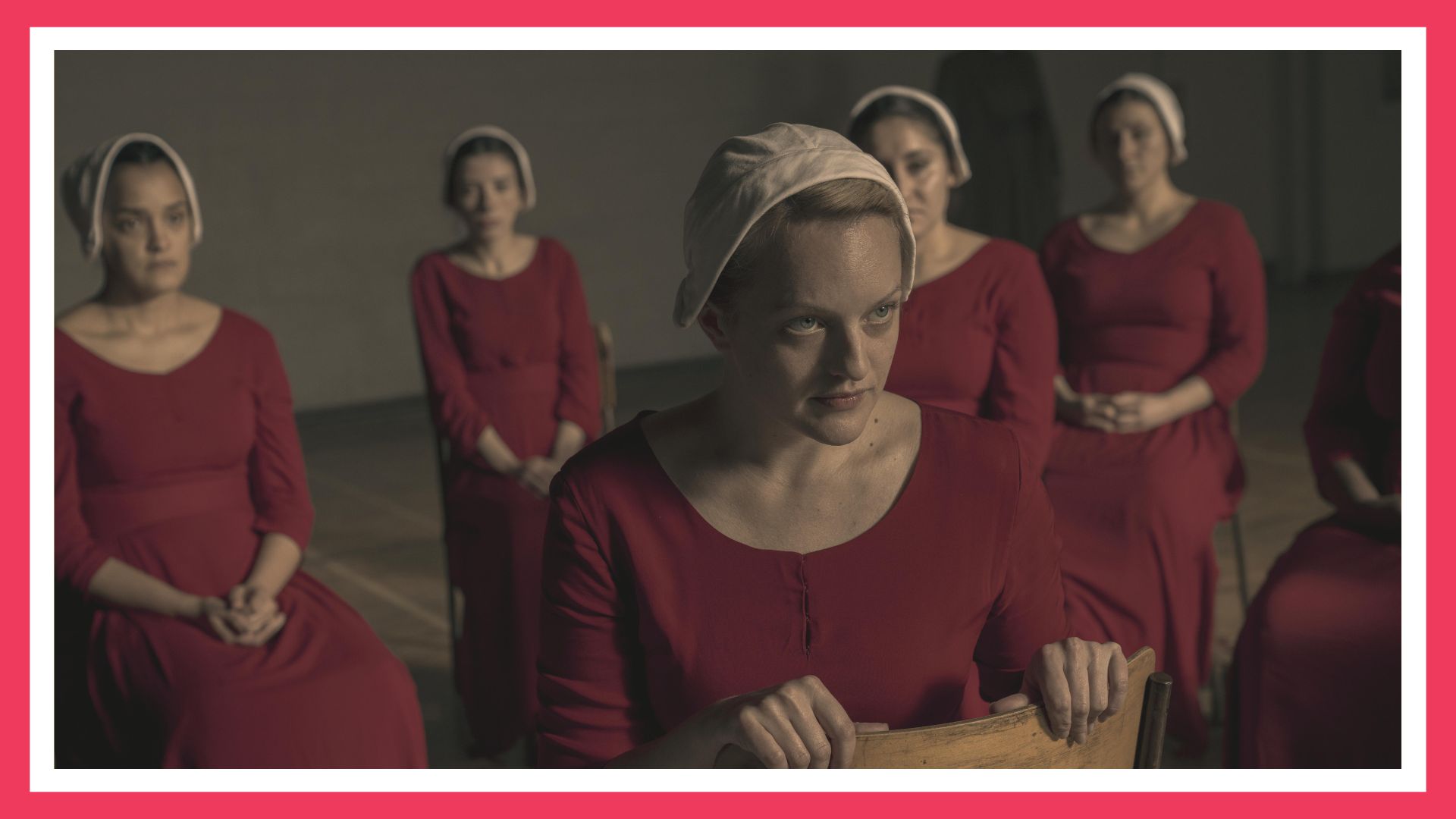All of 'The Handmaid's Tale' sayings and greetings explained
Need a reminder before season 5 drops? Here's a Gilead guide to common 'Handmaid's Tale' sayings. Blessed day!


Praise be: a new season of The Handmaid's Tale is upon us!
Yes, The Handmaid's Tale season 5 hits Hulu on Wednesday, September 14, hopefully giving us updates on that shocking cliffhanger of a season-four finale and though the critically acclaimed show will undoubtedly throw us right back into the dystopian drama, we could still use a little toe-dip, if you will, into the Gilead-verse before all of the action starts.
In the series, you hear several specific phrases and sayings being uttered by the handmaids, Commanders, and other folks in the Republic of Gilead, the totalitarian Christian government that has taken over the bulk of the United States. Most of these sayings have their roots in religion and are lifted straight from the Christain Bible.
Here are some of the most common Handmaid's Tale sayings to know:
Handmaid's Tale sayings and their meanings:
A post shared by The Handmaid's Tale (@handmaidsonhulu)
A photo posted by on
1. "Under His Eye"
Used as "hello" or "goodbye," with the connotation that Gilead's chosen god is always watching.
2. "Blessed Be the Fruit"
The customary greeting to a handmaid, to encourage fertility and the birth of a child.
3. "May the Lord Open"
The usual response to "blessed be the fruit," in hopes to "open" the womb.
4. "Praise Be"
Commonly said in thanks.
5. "Nolite te bastardes carborundorum"
A Latin phrase meaning "Don’t let the bastards grind you down," which was carved in June's closet by a previous handmaid. June uses it as almost a rally cry in her resistance against Gilead.
6. "We've Been Sent Good Weather"
A form of small talk between handmaids, used during supervised walks or errands. The common reply is "praise be."
What is a handmaid on 'The Handmaid's Tale'?
In Gilead, a handmaid is a fertile woman who has been forcibly assigned to produce children for the ruling class of men, known as the Commanders. The role of these handmaids is to raise birth rates, which have dropped in this "near future" due to factors like environmental pollution, radiation, and sexually transmitted diseases.
Not every woman in Gilead becomes a handmaid, though all women have their rights and independence severely limited in this world—even the most powerful, like Serena Joy, are not legally allowed to read or write. However, the religious Gilead elite choose what they consider to be "fallen women"—single mothers, non-Christians, queer women, and so on—to perform as handmaids.
The handmaids are then designated to a specific household, where they will bear children for their Commanders and their wives through a ceremony of ritualized rape. They will also take up the name of their assigned master, using the prefix "Of"—therefore, June becomes Offred, after Commander Fred Waterford.
A post shared by The Handmaid's Tale (@handmaidsonhulu)
A photo posted by on
Who are Marthas on 'The Handmaid's Tale'?
Along with handmaids, Marthas are one of the lower levels of society that women occupy in Gilead. Exemplified by Rita on the show, the Marthas are women who are infertile or too old to serve as handmaids; instead, they usually perform as cooks, housekeepers, or other domestic workers in a commander's home. Whereas the handmaids infamously wear long red cloaks and white-winged head coverings, the Marthas are signified by all-green ensembles and more casual headwraps.
Above the Marthas on the societal ranks are the Aunts, like the chilling Aunt Lydia. They make up the highest level of working women in Gilead, taking on the role of teachers, enforcers, and chaperones of the handmaids. They routinely wear no-funny-business brown.
Above all is the highest class, the Wives, who are elegantly dressed in teal blue and live to serve their Commander husbands and run their homes—that is, unless you're a cunning, conniving spouse like Serena Joy.
On the outskirts are the Jezebels, women forced to work at brothels and sex clubs around Gilead, like Samira Wiley's character Moira did; and "unwomen," the lowest status of infertile women, who have been sent to work the fields in the Colonies.
The Handmaid's Tale season 5 is available for streaming on Hulu from September 14, with episodes dropping weekly.
Christina Izzo is the Deputy Editor of My Imperfect Life.
More generally, she is a writer-editor covering food and drink, travel, lifestyle and culture in New York City. She was previously the Features Editor at Rachael Ray In Season and Reveal, as well as the Food & Drink Editor and chief restaurant critic at Time Out New York.
When she’s not doing all that, she can probably be found eating cheese somewhere.